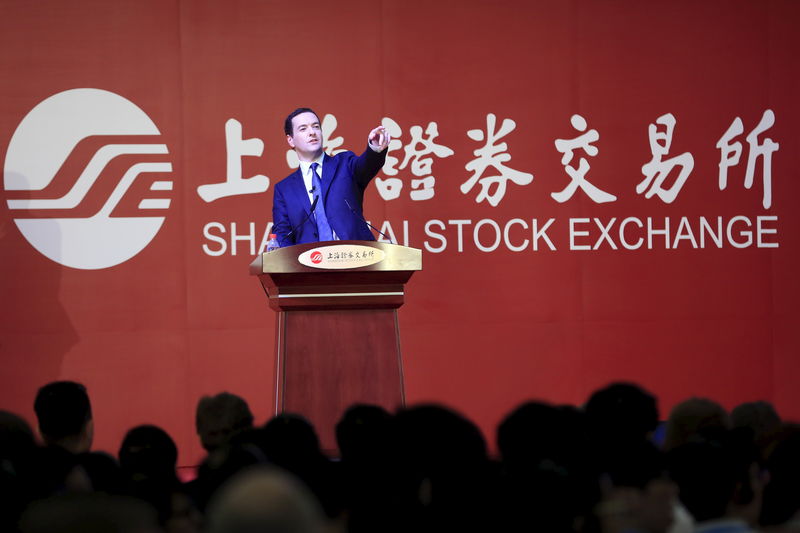By William Schomberg and Ben Blanchard
LONDON/BEIJING (Reuters) - Chancellor George Osborne won an offer of more Chinese investment in Britain on Wednesday but his trip to a violence-prone region of China drew criticism from a human rights group.
Hualing Industry and Trade Group, based in China's Xinjiang region, intends to invest 60 million pounds ($90 million) to kick off the three projects in Manchester, Leeds and Sheffield which will have a final gross value of 1.2 billion pounds.
The ministry said the projects, led by Britain's Scarborough Group, are expected to deliver 10,000 new homes, part of the government's efforts to spur development in northern England which has lagged growth in London and the southeast.
On Monday, Britain and China announced initiatives including an expanded currency swap agreement, Chinese investment in British nuclear power and a study for a scheme to connect the London and Shanghai stock markets.
Osborne said he was aiming to make China Britain's second-biggest trading partner by 2025, compared with its number-six ranking now. He also announced 10 million pounds in extra funding to enable thousands more British schoolchildren to learn Mandarin by 2020.
Osborne's decision to visit the Xinjiang region prompted criticism from the exiled World Uyghur Congress which said he should have used the trip to draw attention to what the group says is China's repression of Uighurs.
Tensions between Muslim Uighurs who call the region home and the majority Han Chinese have resulted in bloodshed in recent years. Hundreds have been killed in violence across the region, blamed by Beijing on Islamist militants.
At least five police officers were killed by separatists in Xinjiang, according to a report by U.S.-based Radio Free Asia on Wednesday.
"Britain cannot, because of its economic interests, tacitly agree with China's repression of Uighurs," Dilxat Raxit, a spokesman for the World Uyghur Congress, said in an email.
"It sends China the wrong signal, leading China to, without any worries, to go even further in surveillance and repression in local areas," Raxit said.

Britain's finance ministry declined to comment. Osborne told BBC radio during his visit to China that London and Beijing disagreed on human rights but added it was better to engage than to stand on the sidelines and resort to "megaphone diplomacy".